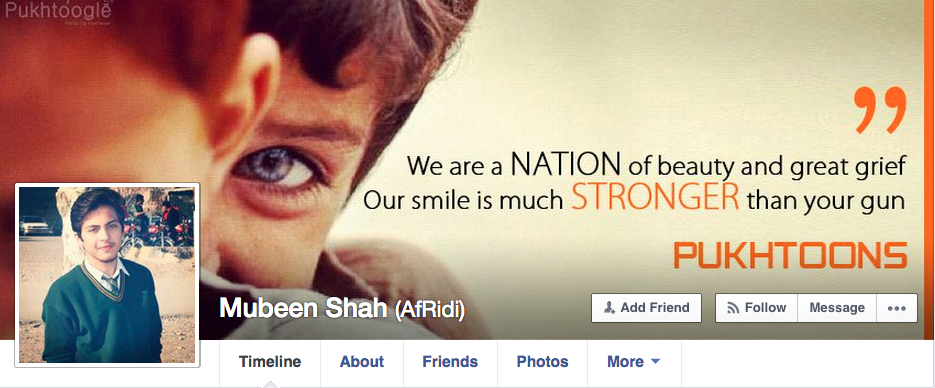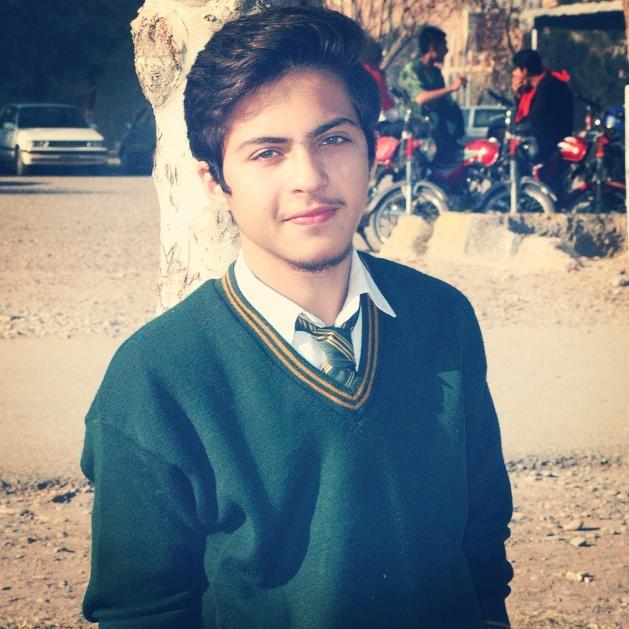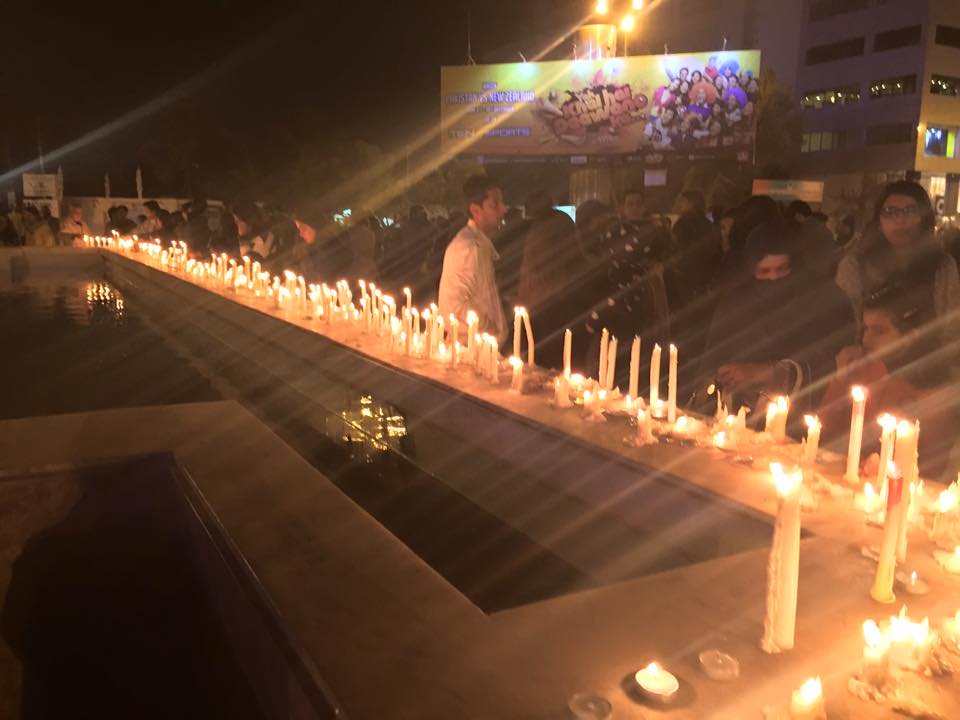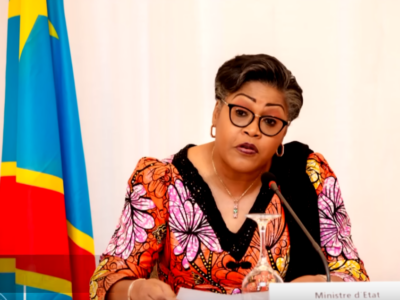
Screengrab from the Facebook page of Mubeen Shah. He was murdered during the attack at the Army Public School in Peshawar.
My two-year old daughter looks at me and says, “What happened, Mama?” I can’t get the images of the blood-stained green-and-yellow striped neckties and white uniforms out my mind. I hope she doesn’t see them in my eyes.
Minutes later my husband messages, “Just like us at that age. In line at morning assembly. Never can you imagine something like this happening.”
Six gunmen dressed in paramilitary uniforms entered the Army Public School in Peshawar, with only murder on their minds. More than a hundred and thirty innocent, beautiful, and hopeful children had their lives snatched from them in the most terrifying way possible. Hundreds of other students and families have been left with open wounds on their bodies and minds.
We are supposed to protect our children from imaginary monsters under the bed, these children faced heinous real monsters in the classroom.
An hour after the gunmen entered the school, and 30 minutes after Pakistani special forces cordoned off the the sprawling Peshawar campus, a spokesman for the Pakistani Taliban told Reuters the attack was in “revenge for the army offensive in Waziristan.”
Some of the children attacked might even have a parent actively deployed in ZarbeAzb, a military offensive against the Taliban launched in June.
There are tens of thousands of students at Army Public School (APS) campuses across Pakistan, a progressive school system that educates children of servicemen and hard-working Pakistanis.

Mubeen Shah in his APS uniform. His Facebook profile image uploaded on December 3, has been shared by hundreds.
Many Pakistanis may be shocked that I call the APS system “progressive”. I don’t use this word lightly. It's the only conclusion I can reach after poring over their website the last few hours, recalling stories I’ve heard about the schools and comparing their values, training processes, curriculum, and organization to other schools in Pakistan.
There are more than 146 Army Public Schools across the country. Some of them are in the most remote parts of the country, where there are no other schools. While there are other school systems at the scale of APS —for example, Beaconhouse, City School and Roots—they are all private schools with high tuition fees.
Years ago, my husband and his brothers went to APS schools, often when their father was posted in a place where only APS schools existed. Today, they jokingly blame their typos on their APS education, but their other tales about the holistic, close-knit, community-driven education they received have always sounded so unique and special to someone like me, educated at a private Catholic school in New York, and a semi-government all-girls school and a private school in Islamabad.
The education system in Pakistan has many flaws, but the APS system tries to offer affordable education, prioritizes holistic development, rigorous teacher training, incredibly well-developed handbooks, and agile curriculum development. I got all this information from their website, which they present as a “resource for teaching and learning as well as a forum for parents to become a part of the learning triangle. ”
Here's a snippet from one of their FAQ's for “pre-school” teacher training: “Formal teaching in school becomes meaningful to students if it is linked to everyday life. When students realize that that the skills taught/developed in the class are applicable to real life, they find the education meaningful and develop more interest.”
Like most schools in Pakistan or other former British colonies, the student body is divided into “houses” that compete in debates, sports and other activities. At APS, the houses are “Unity”, “Faith”, “Discipline”, and “Tolerance”. Those are the values that are ingrained in APS students.
In 2013, APS’ central organizing body launched the “Smiles-Raising Emotionally Healthy Children” project on their website for parents to send queries to a clinical psychologist with 14 years’ experience working with children and young people. I didn't test the service, but apparently an expert will respond to a query via email.
They also run a “Values Education Programme” which focuses on “global citizenship emotional well being and developing better human beings who can contribute in creating a conflict free world based on peace & harmony.” Their 2013-2014 handbook for this program, titled the “Year of Peace and Harmony,” talks about conflict resolution, bullying, cyberbullying, recycling, and so much more.
Here’s an excerpt from their section on understanding and managing conflict in classrooms: “As human beings, it is inevitable that we come into conflict with others as we all have different priorities, values, beliefs, needs and wants. Conflict , therefore, is a normal and natural part of our lives. Conflict is not necessarily destructive. How we respond to conflict determines whether it is constructive or destructive.”
I don’t know how much of this material or training is trickling down to their dozens of branches across the country, but at least they have a solid roadmap. A roadmap for the children whose parents are fighting one of Pakistan’s most scary and heart-wrenching problems—ideology-bred Taliban militancy.
Many of Pakistan’s other schools—both private and government—could learn so much from APS’ handbooks and teacher training guides.
In the end, this war will not be won by bombs and bullets, but by giving vulnerable children, who might fall prey to a brutal ideology, the tools to recognise the merciless monster for what it is.
Sahar Habib Ghazi is Global Voices’ managing editor. She didn’t intend for this to read like a press release for APS, and is very sorry if it did, but she believes APS’ story is one of the many important and untold stories in Pakistan. She tweets at @SaharHGhazi.









26 comments
Rest in peace beautiful souls, rest in peace.
Many of cousins and friends have been educated in the APS systems all over Pakistan and I have availed of their grounds or equipment in the past. I cant imagine those playgrounds and classes/labs being splattered with blood nor those innocent kids dying for some monster’s idea of revenge. Life sucks when innocents are targeted.
Came across this moving blog post by a former student.
Inside Army Public School, once upon a time…
“Which is the bigger atrocity? The millions who grieve or the billions who will never grieve?
It is impossible to grieve every single time. For every single one. It is impossible to grieve for too long”
More here: http://www.dawn.com/news/1151410/inside-army-public-school-once-upon-a-time
MONSTERS…How can you kill childrens ???What motivates you ppl to commit such heinous crime???Even an Animal would spare but……!! My Heart goes out to all Mothers of victims…
https://www.facebook.com/apspwsmu